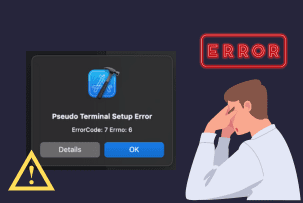Tackling File System Metrics: How to Exclude tmpfs, udf, iso9660 for Precise Monitoring
11:29, 11.04.2024
Tackling file system metrics can be done in a variety of ways which we are not going to overwhelm you with in this article. Based on our practical experience in the field, we will give you some instructions about better monitoring. However, prior to this, you should deploy OS via Foreman. We highly recommend this system management tool for monitoring and configuring the servers both virtual and physical. This open-source tool has a great integration with config management soft that helps deploy apps, automate tasks, and even manage some changes.
If you need detailed instructions about the deployment of OS through Foreman and to simplify the admin procedure with your server, you can find tons of information on this topic. However, after the deployment, you can have a couple of issues when working on foreman-repo servers. So, let’s try to deal with these issues easily in a matter of seconds with the practical background that we are going to share.
Default config of Node Exporter
Node Exporter is important software that can be installed on a range of OSs. It is responsible for exporting metrics that can be received with Prometheus. This type of exporter is used as a target in the config. In order to receive these metrics, the exporter and Prometheus should be connected via TCP port 9100.
Node Exporter is mainly used for Linux systems, in case you are a Windows user, there is also an alternative that is called Windows Exporter.
When speaking about the default config of the exporter, it shows all the file systems that are available. In order not to flood the system with all such files, you’d better ignore some of them. Otherwise, the efficiency of hardware monitoring will be greatly reduced by a huge number of alerts with unnecessary data in them. Don’t worry, because such an issue can be easily solved.
How to Exclude tmpfs, udf, iso9660?
Before excluding these types of files, let’s understand what are they needed for and why they should be ignored. The first one to discuss is tmpfs, this file system applies local memory for the writes and reads of the system. These temporary files use huge disk activity during the manipulation processes.
The next one is udf. This file system is used for information storage for various media, mainly it is used for DVDs and new optical formats of discs.
As for the iso9660, this file system is mainly used for the DVD and BD media. This is an older format when compared with the previously discussed udf. As it is obvious, these file systems are greatly influencing the efficiency of the server hardware, and we’d rather advise excluding them for more reliable monitoring of the system. If they are not excluded, the system will be bombarded with lots of alerts and unnecessary information that will be just a distraction for the user.
To exclude such file systems as iso9660, tmpfs, udf, and others add parameters to the exporter config. As for the default characteristics, the exporter is loaded from /etc/default/node_exporter. To change the default data you will need to add the
line:
NODE_EXPORTER_OPTS="--collector.filesystem.ignored-fs-types="^( autofs|udf|tmpfs|iso9660)$""
By adding one simple line and restarting the node exporter, you are changing the metrics that will not be taken into consideration. This is such an easy step, but it is really impactful on the resource’s consumption. So, you are greatly minimaxing the consumption of resources and generally simplifying the procedure of equipment management.


